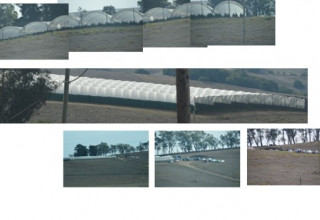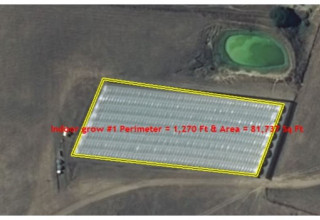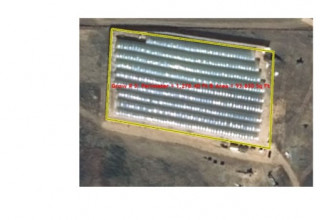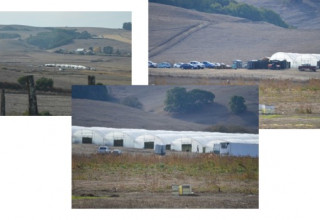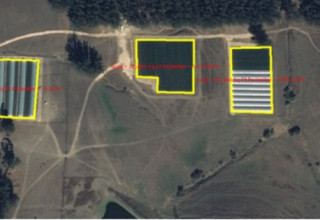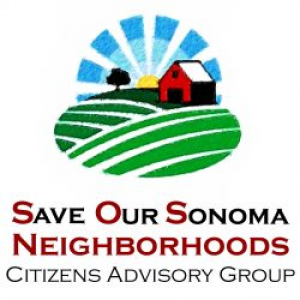Neighborhood Coalition Sonoma County Argues Piecemealing Cannabis Permits to Circumvent CEQA Creates Juggernaut Environmental Disasters
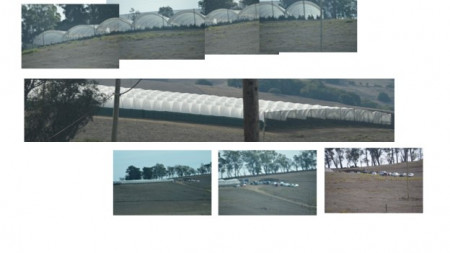
PETALUMA, Calif., October 29, 2021 (Newswire.com) - Neighborhood Coalition Sonoma County (NCSC) is calling for a moratorium for all future multi-tenant projects, and immediate cancellation of all previously issued permits to mitigate the destruction that is wreaking havoc on the environment of Sonoma County. The multi-tenant permitting process called 'Ministerial Permits' by the Department of Agriculture is more accurately described by the California Environmental Quality Act as 'piecemealing' and must be discontinued.
The CEQA Guidelines define a project under CEQA as "the whole of the action" that may result either directly or indirectly in physical changes to the environment. This broad definition is intended to provide the maximum protection of the environment. Piecemealing or segmenting means dividing a project into two or more pieces and evaluating each piece in a separate environmental document, rather than evaluating the whole of the project in one environmental document. This is explicitly forbidden by CEQA because dividing a project into a number of pieces would allow a Lead Agency to minimize the apparent environmental impacts of a project by evaluating individual pieces separately, each of which may have a less-than-significant impact on the environment, but which together may result in a significant impact. Segmenting a project may also hinder developing comprehensive mitigation strategies. [AEP CEQA Portal Topic Paper 02-10-20]
NCSC maintains that corporate cannabis is gaming Sonoma County and violating state and local laws, while supervisors rig permitting to avoid protecting Sonoma County's environment. Sonoma County has succeeded in rapidly accelerating cannabis permitting by issuing ministerial Zoning Permits (ZP), cannabis permits that violate Sonoma County's cannabis ordinance. Instead of benefiting "small family farmers," purportedly the group Sonoma County Supervisors want to encourage, the County's actions have in its place benefitted large cannabis operators such as CannaCraft and SPARC, as can be seen in the Related Files section of this release.
These ministerial permits avoid consideration of the environmental impacts of the cannabis operations, including cumulative impacts, required by the California Environmental Quality Act (CEQA), and remove the public from the process entirely. The Rules:
• To grow cannabis in Sonoma County, an operator must obtain both a state and a local license/permit.
• Sonoma County's 2018 Cannabis Ordinance established a ministerial path for outdoor cannabis cultivation of 10,000 square feet or less on parcels of 10 acres or larger, in LEA and DA zoned areas. All other cannabis operations (other than the very smallest- cottage") require a Conditional Use Permit (CUP).
• The CUP process is expensive in time and money - takes approximately 2-3 years and $30,000, but a ministerial process takes only approximately 3-4 months and costs less than $5,000. The CUP process requires specific environmental review, is a public process, with public notification and hearings; the ministerial process has no project-specific environmental review and is "over the counter" with no public notification or public process.
• Sonoma County regulations prohibit a cannabis operator from growing more than one acre total of cannabis within the County. (Sec. 26-88-254. -Cannabis cultivation—Commercial (e))
• Sonoma County regulations allow "multi-tenant" operations on a single parcel (10 acres or larger), as long as the aggregate cultivation area is no larger than is allowed by the ordinance. (Sec. 26-88-254. -Cannabis cultivation—Commercial (f)(2)) If multiple applicants apply for ministerial permits on a single parcel, Sonoma County's ordinance allows only a maximum outdoor cultivation area of 10,000 square feet for any single parcel. (Tables 1 A-C and ORD 18-0003, Summary of Allowed Land Uses and Permit Requirements for Cannabis Uses)
The Problem:
Obviously, it is far cheaper and quicker to obtain a ministerial permit to grow cannabis outdoors than it is to enter the CUP process, which requires project-specific environmental review and a full public process. Starting in 2019, and accelerating in 2020 and 2021, cannabis operators figured out how they could game Sonoma County's cannabis permitting structure. Ministerial cannabis permits went from being a minority of cannabis applications to the vast majority in 2021 - 143 ministerial applications and only 3 CUP applications. See this graph for a comparison of the number of ministerial applications to CUP applications over years.
Even though County cannabis regulations limit outdoor cannabis cultivation with a ministerial permit to a maximum of 10,000 square feet on any single parcel, many of these applications were each for 10,000 square feet of cannabis cultivation on the exact same parcel. It strains credulity that the Sonoma County Department of Agriculture didn't "notice" this detail. CannaCraft related businesses, in fact, submitted 17 applications, each for 10,000 square feet of cannabis cultivation, and the permits were issued in sequential order: APC21-0111 through APC21- 0127. It's difficult to understand how the Sonoma County Department of Agriculture could have missed that these permit renewals would result in 5 parcels each having 40,000 square feet of cannabis cultivation, all controlled by one entity. These Sonoma County Department of Agriculture actions took place with at least the Board of Supervisors' tacit approval.
By this behavior, NCSC believes the County has evaded compliance with CEQA, as these piecemeal approvals clearly violate CEQA (among other CEQA violations). The County can't claim ignorance of how their actions violated state and local laws, as they have been notified of this problem for over a year by both concerned members of the public and their attorneys. Although at least one Supervisor has suggested the County hire a "forensic accountant" to determine just how this happened, there's no need for that expenditure of money. Anyone with little time, access to the internet, and the County's data on cannabis permits applied for and issued can easily prove that the County has been issuing these large-scale cultivation permits what NCSC believes has been a violation of the law have obtained multiple large-scale permits under different LLCs and corporate names, which all are directly connected to their businesses. Details of these issued permits can be found here.
The Solution:
All the permits the Sonoma County Department of Agriculture or Permit Sonoma has issued that are in violation of Sonoma County's regulations should immediately be voided, and all pending applications that, if issued, would be in violation of Sonoma County's regulations should be terminated. When those applications, if issued, would not violate Sonoma County's prohibition of more than one acre of cannabis cultivation per person total in the County, or other Sonoma County or state regulations, the permit holders and applicants should be encouraged to reapply under the CUP process, as is required by law. To do otherwise would be in violation of CEQA, state law, and Sonoma County's regulations. Instead, the staff is recommending that the Board of Supervisors on October 26th extend all of the permits issued in violation of CEQA and Sonoma County's regulations for 5 years. That proposed 5-year extension would itself be an additional violation of CEQA, as well as of both Sonoma County's regulations and state law.
To be clear, there is no basis to extend these permits for 5 years, or for any period. They must be voided immediately.
Neighborhood Coalition Sonoma
Sanjay.bagai@gmail.com
(510) 599 5272
Source: Neighborhood Coalition Sonoma County
